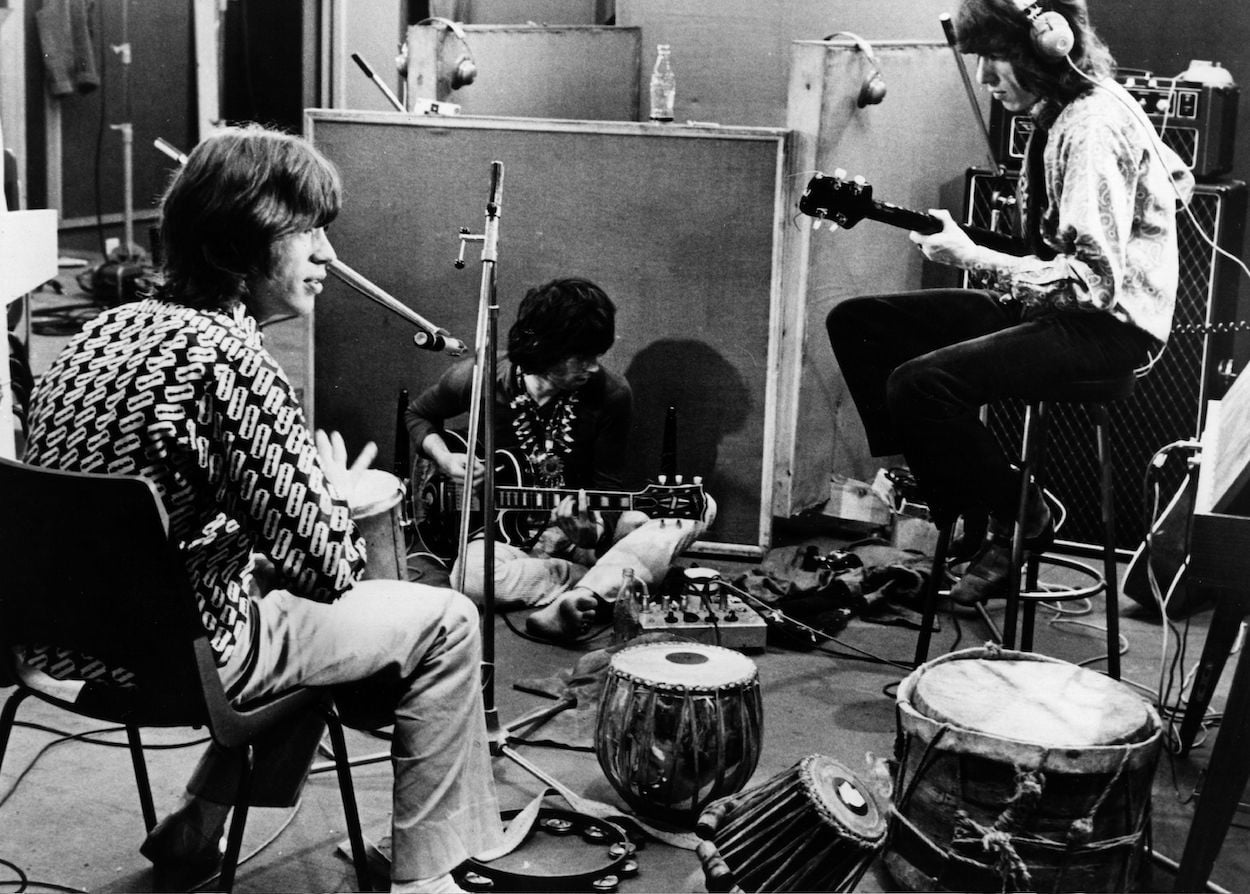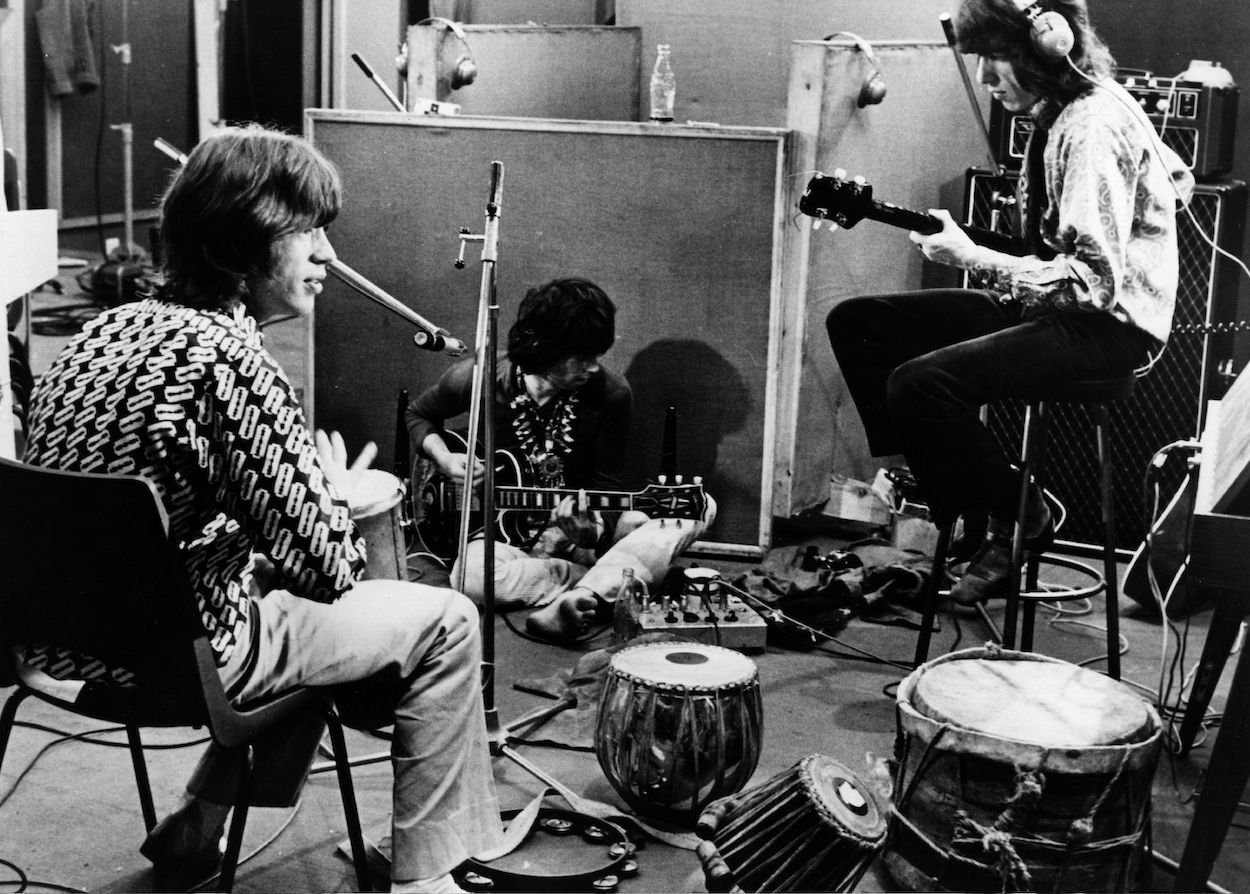
The Rolling Stones’ Mick Jagger Once Said Sympathy for the Devil’ was “Sort of a Bob Dylan Song”
You can’t tell the story of classic rock without The Rolling Stones. And you can’t tell the band’s story without discussing the song “Sympathy for the Devil.” Mick Jagger once said the song was powerful because of its mid-tempo groove, and he also described it as something close to what Bob Dylan might do, and he’s not too far off.

Mick Jagger once said “Sympathy for the Devil” was “Sort of a Bob Dylan song”
Jagger once told Rolling Stone magazine that the works of French poet Charles Baudelaire influenced him when he wrote “Sympathy for the Devil,” per Far Out magazine. Jagger then compared the song to Bob Dylan, another music legend who made his name in the 1960s.
Baudelaire wasn’t the only author that inspired Jagger’s lyrics for the song. He was also reading Mikhail Bulgakov’s novel The Master and Margarita, a book about the devil visiting Russia. The English Jagger synthesized the works of a French poet and Russian author to arrive at something close to an American singer-songwriter.
“I think [the lyrics were] taken from an old idea of Baudelaire’s, I think, but I could be wrong. Sometimes when I look at my Baudelaire books, I can’t see it in there. But it was an idea I got from French writing. And I just took a couple of lines and expanded on it. I wrote it as sort of like a Bob Dylan song.”
Mick Jagger describes “Sympathy for the Devil” as a Bob Dylan song
Die-hard music fans won’t have a problem telling the difference between Dylan and the Stones, but Jagger might be onto something with his comparison.
Jagger’s lyrics on “Sympathy for the Devil” resemble Dylan
The blues-tinged Rolling Stones and Dylan’s folk leanings in the 1960s didn’t necessarily have much in common, and Jagger didn’t specifically describe how “Sympathy for the Devil” is sort of like a Dylan song. Still, it’s not hard to squint a little and see Jagger’s point.
When Jagger and Keith Richards started writing their own music in the mid-60s (the Stones’ early albums consisted almost entirely of American blues and pop covers), they didn’t stray far from their blues roots. The band had never done anything like “Sympathy for the Devil” when it led off the seminal Beggars Banquet album in 1968.
Lyrically, Jagger displayed depths he hadn’t shown before. He explores the perception of good vs. evil and flips convention upside down with a sympathetic first-person narrative told from the devil’s perspective. There’s a deeper meaning to the song, and it strides close to Dylan’s biting social commentary of the time.
Musically, piano, bongos, and shakers dominate until the backing “woo-woos” come in and Richards unleashes a blistering solo halfway through the song. The Stones stretched out stylistically later in their career, but “Sympathy for the Devil” was as close to Dylan as anything they had done at the time.
The song is one of the Rolling Stones’ signature songs
Jagger, Richards, and the Stones hit their stride in the back half of the 1960s as they found their greatest album and Billboard singles chart success. “Sympathy for the Devil” didn’t reach the Billboard charts until its 2003 remix, but it remains one of the band’s biggest hits regardless of chart position.
“Sympathy” not only kicked off Beggars Banquet in style, but it signaled The Rolling Stones’ pending dominance. Banquet started an incredible four-album run that included Let it Bleed, Sticky Fingers, and Exile on Main St., which Jagger once said was better than the sum of its parts. (You could probably call it a strong five-album streak by including 1973’s Goats Head Soup and not get many complaints.)
Jagger’s literary inspiration when he wrote “Sympathy for the Devil” made it close to Bob Dylan in his mind. It’s not too hard to see his point when you trace the arc of The Rolling Stones’ 60-year career.
For more on the entertainment world and exclusive interviews, subscribe to Showbiz Cheat Sheet’s YouTube channel.


